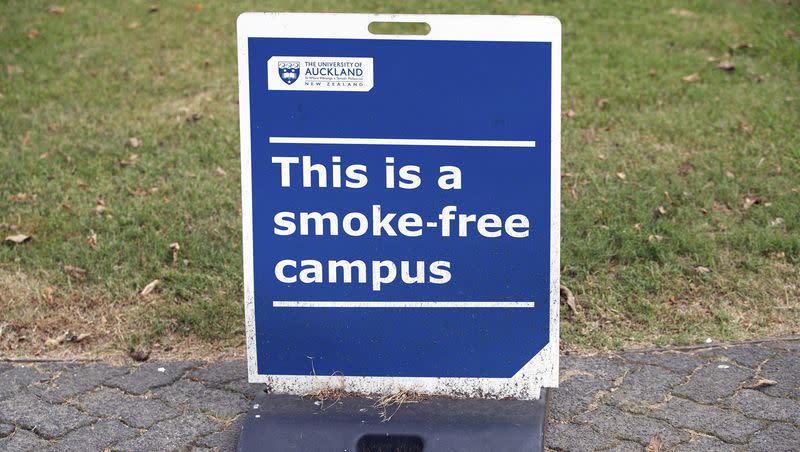New Zealand ditches plan for ‘first generation’ smoking ban

- Oops!Something went wrong.Please try again later.
The world’s first-ever generational smoking ban has itself gone up in smoke.
New Zealand under then Prime Minister Jacinda Ardern had announced a total ban on cigarette sales to anyone born after 2008, starting in 2024. She stepped down before it could be implemented.
Now the country’s new government said it is abandoning the proposed ban — an announcement that has garnered some harsh criticism from public health experts since smoking is the leading cause of preventable deaths in New Zealand.
“We are appalled and disgusted. ... This is an incredibly retrograde step on world-leading, absolutely excellent health measures,” Richard Edwards, tobacco control researcher and public health expert at the University of Otago, told BBC. “Most health groups in New Zealand are appalled by what the government’s done and are calling on them to backtrack.”
The ban has attracted international attention, as the Deseret News has reported. A survey published last February found half of U.S. adults want tobacco products to be banned by the U.S. Food and Drug Administration in this country, too, for example.
In late 2021, when the planned ban was announced, BBC reported that 13% of New Zealand adults smoke, the rate highest among Indigenous Maori, where almost a third smoke. The country’s health ministry said smoking causes 1 in 4 in four cancers and is the top cause of preventable death.
Related
Critics of the ban warned it could create a black market for tobacco. Prime Minister Christopher Luxon said not banning tobacco for younger users and not reducing the number of shops selling it would prevent the black market and also keep shops from being targeted for crime.
According to The Guardian, “The legislation, which is thought to have inspired a plan in the UK to phase out smoking for future generations, contained a slew of other measures to make smoking less affordable and accessible. It included dramatically reducing the legal amount of nicotine in tobacco products, allowing their sale only through special tobacco stores, and slashing the number of stores legally allowed to sell cigarettes from 6,000 to just 600 nationwide.”
Time reported that “Luxon’s appointment comes six weeks after his conservative National Party won national elections with 38% of the vote, and formed a coalition with the populist-right New Zealand First. Repealing the ban was not part of Luxon’s election campaign, but the decision came about as part of the coalition agreement to cut taxes.”
Because the measure passed, it will have to be repealed, but the government has a majority that is expected to make that happen. The government plans to use taxes from tobacco products to fund tax cuts for middle- and high-income earners. It settled on that as a funding source, BBC said, after a plan to open up foreign property ownership failed. That had been the designated source of funding for the tax cuts.
The article said that “New Zealand still aims to reduce its national smoking rate to 5% by 2025, with the aim of eventually eliminating it altogether. More than 80,000 adults have quit in the past year, its national data shows.”

